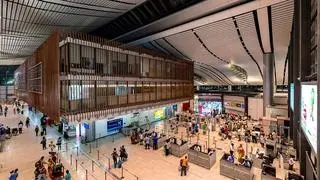The Government is working on creating a mechanism to ensure that the rebates and discounts given by ports to shipping lines are passed on to the exporters and importers.
The issue has been taken up by the Logistics Department in the Ministry of Commerce with shipping lines and ports, a government official said.
“When a ship comes to the port, she is getting a certain percent discount on vessel related charges (VRC). Is this discount going back to the trade (exporters and importers) or is it staying in the lines’ pocket,” said Anil Devli, Chief Executive Officer of the Indian National Shipowners’ Association (INSA).
N Sivasailam, special secretary (logistics) in the Department of Logistics says it is important it goes back to the trade, Devli said.
“The special secretary (logistics) has raised this issue with the Indian Ports Association (IPA) and there is a movement now where the government has looked at this pointedly and decided to ensure that if rebates, discounts or any kinds of benefits are given to intermediaries, there needs to be a mechanism whereby this gets passed on to the ultimate users,” Devli said.
“There are many discounts/rebates given by the government or ports and Container Corporation of India, but is there a transparent mechanism to show that these are consciously passed onto the trade and industry. Then only you can attract more cargo to the ports,” a Karnataka-based coffee exporter said.
Devli drew a parallel on this issue to what the Government did on LPG subsidy a few years ago.
“Aaadhar came in solely because the subsidy was getting lost somewhere in the middle. So, let us look at these discounts also in the form of subsidy. Now that had to actually come to the user but is getting lost in my pocket. I do agree there needs to be a better system whereby the delivery of this discount gets passed on to the final trade,” he said adding that the Government is working towards creating a mechanism for this.
The other view
Global container lines, though, are sceptical about this move.
“In very broad principle, they are (being) passed on to the ultimate users, but the difficulty is always how you do the math to demonstrate how that happens,” says Julian Bevis, Senior Director (South Asia), Maersk Group, which runs Maersk Line, the world’s biggest container shipping company.
“It doesn’t always happen penny for penny, that’s not how the economics work. The real point I think is that the more you encourage shipping services by reducing the vessel related charges, more services will come to a port and they will compete with each other and that will bring down the costs and consequently the trade benefits. But, to draw a line on this is extremely difficult, but it does happen,” he said.







Comments
Comments have to be in English, and in full sentences. They cannot be abusive or personal. Please abide by our community guidelines for posting your comments.
We have migrated to a new commenting platform. If you are already a registered user of TheHindu Businessline and logged in, you may continue to engage with our articles. If you do not have an account please register and login to post comments. Users can access their older comments by logging into their accounts on Vuukle.